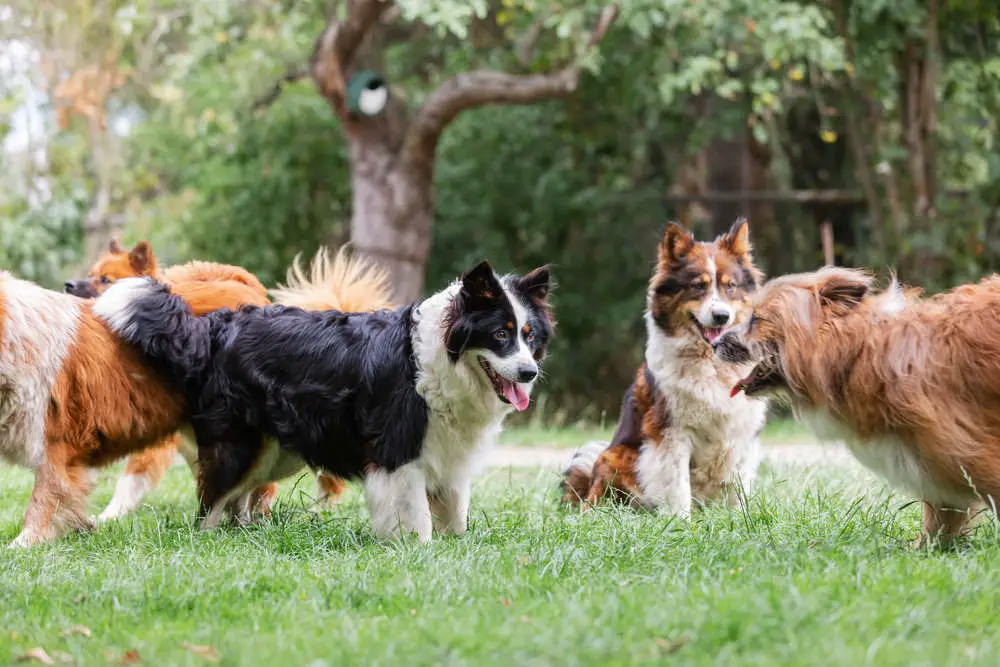
Do you ever wonder why your dog pees on other dogs? This behavior can be quite frustrating and embarrassing for dog owners, but it’s actually quite common among dogs. Understanding why dogs engage in this behavior can help you address it and prevent it from happening in the future.
One reason why dogs pee on other dogs is to mark their territory. Just like how dogs mark their territory by peeing on trees, bushes, and fire hydrants, they may also mark other dogs to establish their dominance and claim ownership over a certain area. This behavior is instinctual and is often seen in male dogs that have not been neutered.
Another reason why dogs may pee on other dogs is to communicate with them. Dogs use urine to convey information about their age, sex, and reproductive status, and peeing on another dog may be a way for them to communicate their intentions or establish social relationships. However, this behavior can also be a sign of anxiety or nervousness, especially if your dog is submissive or fearful around other dogs.
Why Do Dogs Pee on Other Dogs?
If you’ve ever seen your dog pee on another dog, you may be wondering why they do this. The behavior can seem strange, but it’s actually quite common among dogs. In this section, we’ll explore the reasons why dogs pee on other dogs and what you can do to manage this behavior.
Understanding the Behavior of Dogs
Dogs communicate with each other through various behaviors, including sniffing, barking, and marking their territory with urine. Peeing on other dogs is a way for dogs to communicate with each other and establish dominance. It’s also a way for dogs to mark their territory and let other dogs know that they’ve been there.
Peeing on Other Dogs: Causes and Triggers
There are several reasons why dogs may pee on other dogs. One common reason is anxiety. Anxious dogs may deposit a larger volume of urine than dogs doing it for other reasons. There is also a tendency for dogs to have urine marks on places that are not vertical. Dogs may also pee on other dogs to establish dominance or claim the other dog as their territory. Unneutered male dogs are more likely to engage in this behavior than neutered males or females.
Training and Control
If your dog is peeing on other dogs, it’s important to establish control and set boundaries. You can do this by training your dog to obey commands and teaching them appropriate behavior around other dogs. Punishing your dog for peeing on other dogs is not recommended as it can lead to fear and anxiety, which can worsen the behavior. Instead, focus on positive reinforcement and redirecting your dog’s attention when they start to engage in this behavior.
Medical Reasons
In some cases, dogs may pee on other dogs due to medical reasons. Your veterinarian can help determine if there is an underlying medical condition causing this behavior, such as a bladder infection, urinary incontinence, or kidney disease. If your dog is having accidents or exhibiting other unusual behaviors, it’s important to schedule a visit with your vet to rule out any medical issues.
Also Read: How to Stop Dog From Peeing On Couch
How to Deal with Dogs Peeing on Other Dogs
Positive Reinforcement
One of the most effective ways to stop your dog from peeing on other dogs is through positive reinforcement. Reward your dog with treats or praise when they exhibit good behavior, such as refraining from marking their territory on other dogs. This will help them associate good behavior with positive consequences and encourage them to continue behaving well.
Housebreaking and Training
If your dog is still a puppy, it’s important to start housebreaking and training early on. This will help them learn proper behavior and reduce the likelihood of them peeing on other dogs. Consistency is key, so make sure to establish a routine and stick to it. If your dog is older and not properly trained, consider enrolling them in a training class or working with an animal behaviorist.
Behavioral Issues
Sometimes, dogs may pee on other dogs due to behavioral issues such as anxiety or fear. In these cases, it’s important to address the underlying issue and work with your dog to overcome it. This may involve desensitization training or working with a professional to develop a behavior modification plan.
Medical Treatment
In some cases, dogs may pee on other dogs due to medical reasons such as bladder stones, urinary tract infections, or kidney disease. If you suspect your dog may have a medical issue, it’s important to take them to the vet for a proper diagnosis and treatment. Additionally, older dogs may experience incontinence or arthritis, which can make it difficult for them to control their bladder.
Remember that peeing on other dogs is a natural behavior for dogs, but it can be frustrating for owners. By using positive reinforcement, proper training, and addressing any underlying behavioral or medical issues, you can help your dog learn appropriate behavior and reduce the likelihood of them peeing on other dogs.
Also Read: How to Stop Dog Urine From Killing Grass
Final Thoughts
Dogs peeing on other dogs is a natural behavior used for communication, dominance, and territory marking. Unneutered male dogs are more likely to engage in this behavior.
To manage it, use positive reinforcement and training to teach proper behavior. Address any underlying anxiety or fear with professional help, and consult your vet if medical issues are suspected.
Remember, understanding and addressing the root causes can help reduce this behavior, allowing your dog to have positive interactions with their furry friends.
